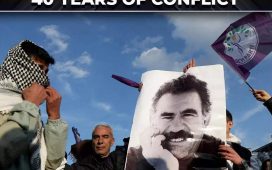
” The relationship between households’ sentiment on their own income and their view on overall employment scenario, although relatively high during the pandemic, has returned to pre-pandemic levels for all regions, with the strongest link observed in the northern region” said Sourajyoti Sardar, Aditya Mishra, Manu Swarnkar, and Tushar B. Das from the Department of Statistics and Information Management, Reserve Bank of India in their study published in the latest monthly bulletin.The views are personal views of the authors and do not represent the views of the central bank. It may be recalled that the COVID Pandemic between 2020 and 2022 almost derailed the economy not only in India but throughout the globe
The study also reveals that overall spending is primarily driven by essential expenditures, which are mostly price inelastic, while non-essential spending shows less alignment with price levels. The higher income groups displayed more optimism post-pandemic.
Sentiments based on income and occupation categories showed remarkable similarities across regions, indicating consistent consumer behaviour among respective classes throughout the regions. As household income increased, the level of optimism also improved, although all income classes experienced a decline in sentiment during the pandemic.
The analysis of regional variations in consumer confidence in India shows that households’ sentiment indicate that sentiments vary across regions, with one region more optimistic about the current situation and another about the future. Analysis showed that south and west regions displayed higher levels of confidence compared to the national average, while the northern region exhibited intermittent optimism
Highlighting the divergence in consumer behavior the study pointed that the inflation levels plays a big role in shaping the perception on the economic situation the study pointed. ” The coherence analysis, an econometric exercise to analyze consumer behavior highlights the strong influence of price levels on consumers’ perceptions of the general economic situation, especially in the eastern region” the study said.The study also reveals that overall spending is primarily driven by essential expenditures, which are mostly price inelastic, while non-essential spending shows less alignment with price levels. The higher income groups displayed more optimism post-pandemic.










